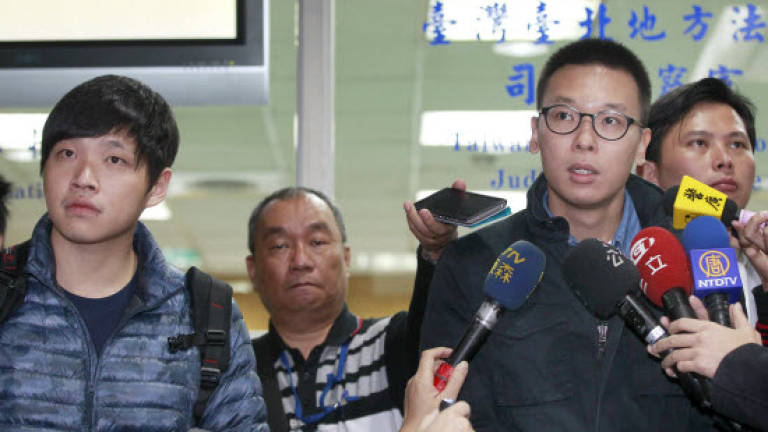Taiwan activists fan China fears as protest trial opens

TAIPEI: Anti-China activists told a court in Taiwan that their weeks-long protest campaign last year saved the island from further economic colonisation by Beijing, in defence statements given at the start of their trial on Wednesday.
The protests, dubbed the "Sunflower Movement", marked the largest display of anti-China sentiment seen in Taiwan for years and followed nearly a decade of rapprochement between the two historical foes.
Some 119 activists stand accused of stirring public unrest and attacking police during protests aimed at blocking a controversial trade deal that Taiwan's President Ma Ying-jeou had signed with China.
"What would Taiwan be like now if we hadn't organised those protests?" Chen Wei-ting, one of eight main protest leaders on trial, told the court. "All these industries - publishing, telecoms, tourism - would have been bought up by large Chinese interests."
President Ma, who is in the final year of his second four-year term, has overseen the signing of several pacts aimed at building economic ties in sectors ranging from finance to tourism.
Opponents launched the protest movement after accusing Ma of trying to ram through legislation for a far-reaching services-trade pact without public consultation in March of last year.
Before the pact could become law hundreds of protesters led by Chen and others forced their way into Taiwan's parliament and repelled police efforts to evict them.
The pact, which has still to be ratified, would have opened 64 of Taiwan's service sectors to China and 80 of China's sectors to Taiwan.
Opponents say it would have accelerated political reconciliation, a key goal of China's foreign policy. Last September, China's President Xi Jinping reiterated the "One Country, Two Systems" principle for bringing Taiwan back under Chinese rule.
"Without this protest Ma and Xi could have already held political talks," Chen said in his defence statement. "We could be commemorating the anniversary of Taiwan becoming a part of 'One China'."
The emergence of the Sunflower Movement is regarded as a turning point in Taiwan politics, as new parties and grassroots voices have begun calling for more openness in negotiations with China.
The protests also accelerated a steep decline in popularity for Ma and his ruling Nationalist party, as evinced by the party's drubbing in recent local elections.
After losing a civil war in China to the Communists in 1949, the Nationalists fled to Taiwan. Since then Taiwan underwent a peaceful transition to democracy and boasts one of Asia's most vibrant civil societies.
China still considers Taiwan a renegade province that it will retake eventually, by force if necessary. – Reuters